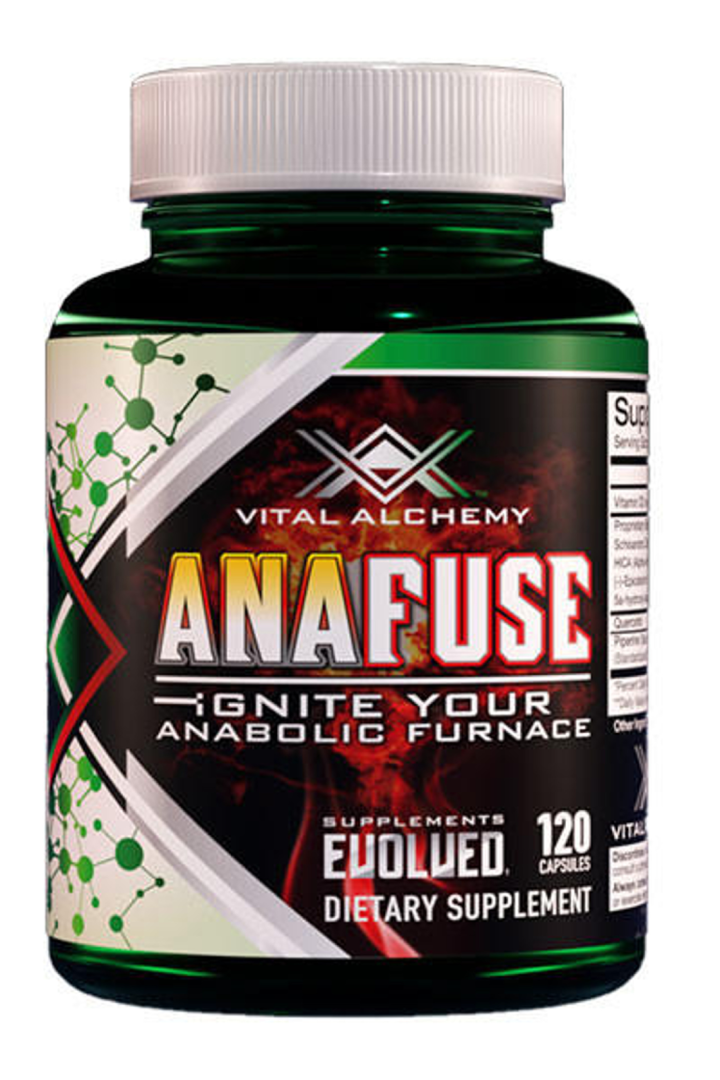Comments
- No comments found

Stacking refers to the practice of combining multiple supplements to enhance their effects synergistically.
In bodybuilding, stacking typically involves strategically selecting and combining different supplements to optimize results during specific phases of training, such as bulking or cutting.

Optimizing supplement combinations is crucial for maximizing the effectiveness of a bulking regimen. By carefully selecting and combining supplements, individuals can enhance muscle growth, increase strength, improve recovery, and support overall performance. Stacking allows for a tailored approach to supplementation, addressing specific goals and individual needs more comprehensively than single supplements alone.
Enhanced Nutrient Absorption: Some supplements work together to enhance the absorption of nutrients. For example, combining creatine with carbohydrates can enhance its uptake into muscles, leading to better performance and muscle growth.
Increased Protein Synthesis: Certain supplement combinations, such as protein powder and creatine, have been shown to increase protein synthesis, the process by which muscles repair and grow after exercise. This can result in faster and more significant muscle gains.
Optimized Hormonal Balance: Some supplements may influence hormone levels in the body, such as testosterone and growth hormone, which play key roles in muscle growth and recovery. By stacking supplements that support healthy hormone production, individuals can optimize their muscle-building potential.
Increased Training Capacity: Stacking supplements can provide additional energy and endurance during workouts, allowing individuals to train harder and for longer durations. This increased training capacity can lead to greater muscle stimulation and growth over time.
Accelerated Recovery: Certain supplements have been shown to reduce muscle soreness and speed up the recovery process between workouts. By stacking these supplements, individuals can experience faster recovery, allowing them to train more frequently and consistently, which is essential for maximizing muscle growth.
Greater Muscle Protein Synthesis: Stacking supplements that promote muscle protein synthesis can lead to more efficient muscle repair and growth after exercise. This can result in faster gains in muscle mass and strength, especially when combined with a structured resistance training program.
Minimized Muscle Breakdown: Some supplements have anti-catabolic properties, meaning they help prevent the breakdown of muscle tissue during periods of intense training or calorie restriction. By stacking these supplements, individuals can preserve lean muscle mass while focusing on building or cutting, depending on their goals.
Creatine: Known for its ability to increase muscle strength, power, and overall performance, creatine is a staple in many bulking stacks.
Protein Powder: Essential for muscle repair and growth, protein powder provides a convenient and easily digestible source of protein, helping individuals meet their increased protein requirements during bulking.
Weight Gainers: Designed to provide a high-calorie, nutrient-dense source of carbohydrates, proteins, and fats, weight gainers are valuable for individuals looking to increase their overall calorie intake and support muscle growth.
Muscle Builders: Specific supplements such as Anafuse, ALPHABULK, and Colossal Muscle are mentioned, which, when stacked with other supplements, further enhance muscle growth potential during bulking phases. These muscle builders typically contain a combination of ingredients aimed at promoting muscle hypertrophy, strength gains, and improved recovery.
Let’s into the essential components of effective body bulking and the ultimate guide to bulking in detail.
Creatine is a naturally occurring compound in the body, primarily found in muscles, and plays a crucial role in supplying energy during high-intensity activities.
Supplementing with creatine has been shown to increase muscle creatine stores, which can lead to improved performance during resistance training exercises.
Research suggests that creatine supplementation can enhance muscle mass, strength, and power output, making it a valuable addition to a bulking stack.
Whey Protein: Fast-digesting protein derived from milk, rich in essential amino acids, particularly leucine, which plays a key role in stimulating muscle protein synthesis.
Casein Protein: Slow-digesting protein is also derived from milk, providing a sustained release of amino acids over several hours, making it ideal for consumption before bedtime.
Plant-Based Protein: Suitable for individuals following a vegetarian or vegan diet, derived from sources like peas, rice, hemp, or soy, offering a complete amino acid profile.
Weight gainers are high-calorie supplements designed to provide a convenient way to increase overall calorie intake, primarily through carbohydrates and protein.
They are particularly beneficial for individuals who struggle to consume enough calories from whole foods alone or have a fast metabolism that makes weight gain challenging.
Weight gainers can help support muscle growth by providing the energy and nutrients necessary for muscle repair, recovery, and hypertrophy during a bulking phase.
Considerations when choosing a weight gainer include the ratio of macronutrients (carbohydrates, protein, and fats), the quality of ingredients, and the presence of added vitamins and minerals.
It's important to select a weight gainer that aligns with your specific goals, preferences, and dietary restrictions, such as lactose intolerance or gluten sensitivity.
Some weight gainers may contain added ingredients like creatine, BCAAs (branched-chain amino acids), or digestive enzymes, which can further support muscle growth and digestion.
Muscle builder supplements are designed to enhance muscle growth, strength, and endurance beyond what can be achieved through diet and exercise alone.
Examples include Anafuse by Vital Alchemy, ALPHABULK by Olympus Labs, and Colossal Muscle by Hard Rock Supplements.
These supplements often contain a combination of ingredients such as natural anabolic compounds, amino acids, and herbal extracts.
Benefits may include increased protein synthesis, improved nutrient delivery to muscles, and enhanced recovery.
When incorporating muscle-builder supplements into a bulking stack, it's essential to consider synergy with other supplements.
Start by assessing individual goals and preferences to select the most suitable muscle-building supplement.
Follow recommended dosage instructions provided by the manufacturer to ensure safety and effectiveness.
Muscle builders can be integrated alongside staple bulking supplements like creatine, protein powder, and weight gainers to maximize muscle growth potential.
Consider cycling muscle builders' best bulking supplements to prevent tolerance buildup and maintain effectiveness over time.

Micronutrients, including vitamins and minerals, play crucial roles in supporting overall health and optimizing performance during bulking.
Vitamins such as vitamin D, vitamin B complex, and vitamin C are essential for various metabolic processes and immune function.
Minerals like zinc, magnesium, and calcium are involved in muscle contraction, energy production, and bone health.
Deficiencies in micronutrients can impair muscle growth, recovery, and immune function, highlighting the importance of supplementation, especially during intense training phases.
In addition to muscle-building supplements, incorporating other supplements can provide comprehensive support during bulking.
Branched-chain amino acids (BCAAs) can enhance muscle protein synthesis, reduce muscle soreness, and promote recovery between workouts.
Adaptogenic herbs like ashwagandha and Rhodiola rosea may help reduce stress, improve recovery, and support immune function during periods of intense training.
Omega-3 fatty acids, found in fish oil supplements, have anti-inflammatory properties that can aid in muscle recovery and joint health.
Pre-workout supplements containing caffeine, beta-alanine, and citrulline malate can boost energy levels, enhance performance, and delay fatigue during workouts, thereby supporting overall bulking progress.
Before designing a bulking stack, it's essential to clearly define your goals. Are you aiming for maximum muscle growth, strength gains, or a combination of both? Understanding your objectives will help tailor your supplement stack accordingly.
Consider your body composition, including your current muscle mass, body fat percentage, and overall physique. Individuals with different body compositions may require different approaches to their bulking stack.
Metabolism plays a crucial role in how your body processes nutrients and supplements. Some individuals have a faster metabolism and may require higher calorie intake or specific supplements to support their bulking efforts.
Supplements can vary widely in cost, and it's important to consider your budget when designing a bulking stack. Determine how much you're willing to invest in supplements each month and prioritize accordingly.
Accessibility is another factor to consider, as certain supplements may not be readily available in all locations. Research the availability of supplements in your area or consider purchasing online if necessary.
Balancing cost-effectiveness with supplement quality is crucial. While it may be tempting to opt for cheaper supplements, prioritize those that are backed by research and reputable brands to ensure efficacy and safety.

While there is a wealth of information available online regarding supplements, consulting with a healthcare professional or nutritionist can provide personalized guidance tailored to your specific needs and health considerations.
A healthcare professional can help assess your individual health status, dietary habits, and potential nutrient deficiencies to determine which supplements may be beneficial for you.
They can also provide recommendations on dosage and timing of supplements to maximize effectiveness and minimize potential side effects. This personalized approach ensures that you're not only taking the right supplements but also taking them in the right amounts for optimal results.
Once you've implemented your bulking stack, it's crucial to monitor your progress closely. This includes tracking changes in muscle mass, strength gains, and overall performance in the gym.
Regular check-ins with a healthcare professional or nutritionist allow for adjustments to be made to your supplement stack as needed. They can help identify any areas for improvement or modifications that may enhance your results.
Additionally, monitoring progress ensures that you're not overloading your body with unnecessary supplements or risking any adverse effects from excessive supplementation. Adjustments can be made to optimize your stack based on real-time feedback and results achieved.
Optimizing your bulking regimen with carefully selected supplement combinations can offer numerous benefits to your muscle-building journey. By strategically incorporating supplements into your diet and training plan, you can enhance muscle growth, improve recovery, and support overall performance.
Leave your comments
Post comment as a guest